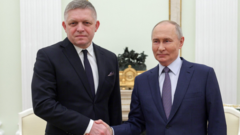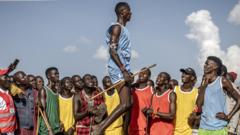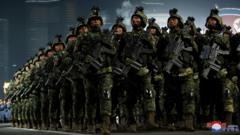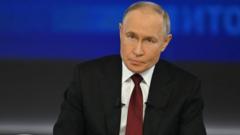As tensions with the West escalate due to the Ukraine conflict, President Vladimir Putin's meeting with BRICS leaders highlights Russia's ambition to forge a new global alliance.
Putin Hosts BRICS Summit to Counter Western Influence

Putin Hosts BRICS Summit to Counter Western Influence
Russia's President seeks to strengthen ties with emerging economies as a response to Western sanctions.
The recent invasion of Ukraine has intensified tensions between Russia and the West, prompting a series of economic sanctions aimed at isolating the country. In a show of resilience, President Vladimir Putin is gathering leaders of the BRICS nations—Brazil, Russia, India, China, and South Africa—along with new entrants such as Egypt, Ethiopia, Iran, and the UAE, in Kazan, Russia this week. This summit aims to not only present a unified front against Western pressure but also to promote a new world order wherein the influence of these emerging economies can rival that of Western nations.
The BRICS coalition represents nearly half of the world's population and over 35% of global economic output, adjusted for purchasing power parity. Analysts believe the summit serves as a demonstration of economic power, with Putin hoping to convey that he maintains significant allies despite international isolation. According to Alexander Gabuev of the Carnegie Russia Eurasia Center, this summit symbolizes "Putin punching back," framing the ongoing conflict in Ukraine as an essential component in dismantling the existing Western-dominated framework while seeking to establish a new global alignment.
While the BRICS gathering may offer a platform for economic collaboration, its long-term effectiveness in countering Western sanctions remains uncertain. With the ongoing geopolitical landscape shifting, the discussions and outcomes of this summit could have lasting implications on international relations and global economic dynamics.
The BRICS coalition represents nearly half of the world's population and over 35% of global economic output, adjusted for purchasing power parity. Analysts believe the summit serves as a demonstration of economic power, with Putin hoping to convey that he maintains significant allies despite international isolation. According to Alexander Gabuev of the Carnegie Russia Eurasia Center, this summit symbolizes "Putin punching back," framing the ongoing conflict in Ukraine as an essential component in dismantling the existing Western-dominated framework while seeking to establish a new global alignment.
While the BRICS gathering may offer a platform for economic collaboration, its long-term effectiveness in countering Western sanctions remains uncertain. With the ongoing geopolitical landscape shifting, the discussions and outcomes of this summit could have lasting implications on international relations and global economic dynamics.





















